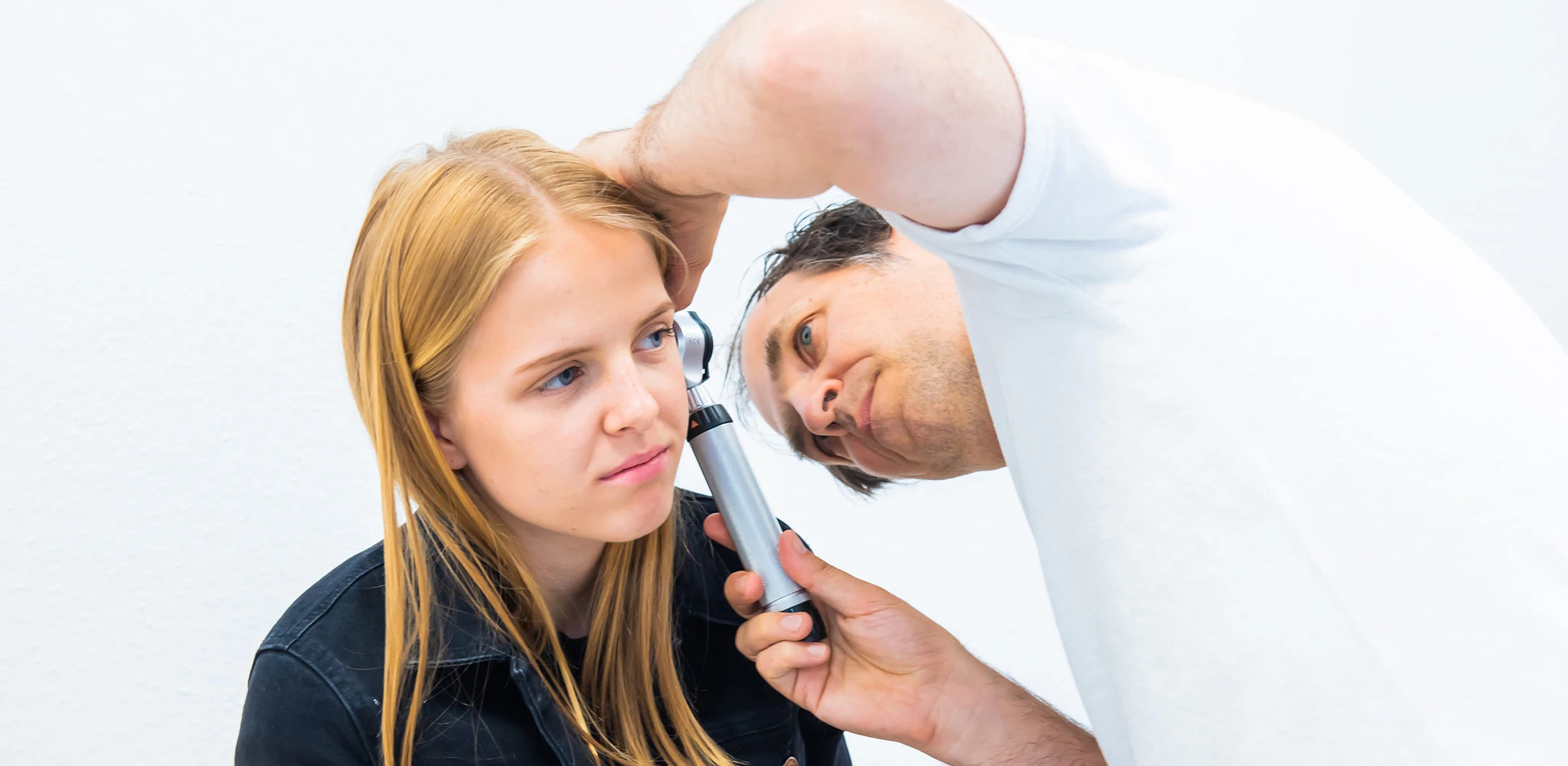Diarrhoea - a classic!
One of the most common clinical pictures in paediatrics is acute gastroenteritis, i.e. diarrhoea - often accompanied by vomiting and fever.
But when does your child start suffering from acute gastroenteritis? There are two specific signs:
The stools must become significantly softer and more liquid.
The frequency of bowel movements must increase significantly, i.e. more than three per day or at least two more than usual.
The main danger is that a child becomes dehydrated due to diarrhoea and vomiting. And it is precisely these signs of dehydration that you must pay extreme attention to.
The most important thing is that your child should not be excessively lethargic and apathetic and should not appear to have significantly reduced vitality. Urine excretion is also very important. The child may pass a little less urine - but it should still pass urine several times a day. The darker the urine, the worse the fluid balance.
Another sign: put your finger in the child's mouth and stroke the mucous membrane on the cheek. If the finger sticks because it is so dry, this is not a good sign. If you notice one or more of these signs, please consult a doctor.
In the end, it doesn't matter which pathogen is responsible. Because there is nothing you can do about it anyway. Exception: If your child has bloody diarrhoea and/or the urine is significantly less, then you should definitely consult a doctor. Because then it can also be decisive what kind of pathogen is behind it.
Otherwise, the treatment is to replace the fluid deficit and the electrolytes that are lost through spitting up and diarrhoea. Ideally, children should drink electrolyte powder dissolved in water. For example, Oralpädon or Elektrotrans. The good old "cola with salt sticks" recipe is only a poor emergency solution. This is because the composition of the salts and sugar is not optimal.
But the most important thing is for the child to drink enough fluids. And if this doesn't work (any more), then the gastroenteritis may need to be treated in hospital. The child is then given an infusion, i.e. fluids via the vein, and usually recovers relatively quickly.
As far as medication is concerned, virtually nothing needs to be done, as the effectiveness of the medication is relatively low. Spitting up and diarrhoea are a kind of self-healing of the body, as it gets rid of the viruses in this way and thus becomes healthy again.
The official recommendations no longer state that you have to go on a diet. However, we still recommend that children eat a low-fat diet for a few days and drink less milk, for example, as this is often not well tolerated. And if the child is still breastfeeding, please continue to do so in any case.
Finally, a tricky point: when is the child allowed back into communal facilities? We always say: it should not have vomited for at least 24 to 48 hours. The stool should have become much firmer and the frequency should have decreased significantly. And the child should be more vital and lively again.
Further interesting tips
Meningococcus I
Infections with meningococci (bacteria that can cause dangerous meningitis, for example) are fortunately very rare and fortunately we can also do a lot to prevent them with vaccinations (more on this in Part II).
Hair problems
Everyone wants to have beautiful hair. And the topic is by no means just one for the hairdressing salon - but also for the paediatrician's practice. There are various hair problems in children and adolescents. A quick run-through:
Recognising diabetes
Today we're talking about a disease that everyone knows from hearsay - but certainly not everyone would recognise in their own child: Type 1 diabetes mellitus, also known as diabetes. There are four warning signs of this disease that you should be aware of.
